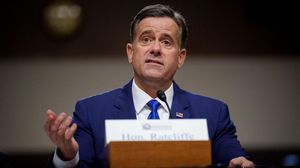Israel has ordered the United Nations Relief and Works Agency for Palestine Refugees (UNRWA) to cease its operations within 48 hours, igniting widespread alarm among humanitarian groups and affected communities. Israeli Ambassador to the UN, Danny Danon, made the announcement, accusing UNRWA of failing to meet its obligations and insinuated infiltration by militant groups such as Hamas. The developments come against the backdrop of contentious new legislation passed by the Knesset, aimed at significantly curtailing the agency’s mandate.
According to reports, the legislation set to take effect imminently will ban UNRWA from operating within Israeli sovereign territory, which includes the occupied West Bank, Gaza, and East Jerusalem. This stipulation follows Israel’s long-held assertions of UNRWA’s compromised neutrality, particularly accusations claiming certain UNRWA sites were utilized by Hamas militants.
The legislation has raised severe concerns over the humanitarian crisis already exacerbated by months of conflict. Philippe Lazzarini, the Commissioner-General of UNRWA, warned the UN Security Council about the catastrophic impact the closure would have on the lives of millions of Palestinians. He stated, “Curtailing our operations now – outside of a political process, and when trust in the international community is so low – will undermine the ceasefire. It will sabotage Gaza's recovery.”
Currently, UNRWA is the cornerstone of humanitarian aid to Palestinians, operating health services, education, and food assistance among the communities it serves. Recent figures indicate this agency provides food to over half the Gaza population. Yet, with the implementation of the new laws, there are fears this major support system could collapse.
UNRWA supplies and assists around 5.7 million registered Palestinian refugees across the region. For many, its services are not merely beneficial but foundational for survival. Lazzarini urged the international community to react decisively to prevent the legislation from undermining efforts to restore peace and stability. He expressed, “This will only worsen the already catastrophic living conditions of millions of Palestinians.”
The ramifications of the cessation are particularly grave for Gaza, already devastated by war, where hospitals, schools, and infrastructure have been severely damaged. The legislation is predicted to jeopardize education for thousands of students and healthcare access for many patients, with 70,000 patients at risk of losing these services.
International responses have varied, with considerable criticism aimed at Israel. UN Secretary-General António Guterres called for Israel to retract its order, highlighting the potential humanitarian disaster stemming from this decision. “We face the risk of this becoming an example... This is a unilateral blow against multilateralism,” said Lazzarini. “UNRWA remains absolutely committed to stay and deliver.”
The situation also reflects broader geopolitical dynamics, including the shifting stance of the United States. Under the previous administration, there was more support for UNRWA; now, there are indications of backing for the legislation restricting its operations. Dorothy Shea, the U.S. Ambassador to the UN, stated, “The United States supports the implementation of this decision,” intensifying concerns about the future of humanitarian aid.
Despite calls to reverse, freeze, or void the newly enacted laws, the Israeli government appears steadfast, asserting its right to control operations within its borders. Many Palestinians expressed deep anxiety over the potential loss of UNRWA's support. Iman Hillis, staying at an UNRWA school, shared her worrying thoughts: “We will have nothing to eat or drink, and this will affect us greatly.”
The backdrop of violence and instability complicates these developments. The current fragile ceasefire between Israel and Hamas should ideally be used as leverage for humanitarian access, yet Israeli officials insist on purging UNRWA from their jurisdiction, believing they could achieve similar levels of aid delivery through alternate channels.
Critics of the Israeli ban suggest the decision poses far-reaching effects and establishes dangerous precedents concerning UN operations globally. “A unilateral action by one member state aimed at dismantling the operations of another UN-chartered agency could threaten the credibility of multilateral initiatives worldwide,” Lazzarini warned.
This crisis symbolizes the larger struggle for Palestinian rights and reflects the dire humanitarian situation they face. UNRWA was established as part of the broader international framework to assist those displaced by conflict. Observers argue dismantling its operations ties back to efforts aimed at diminishing Palestinian agency and rights.
Presently, the international community is urged to act swiftly. The humanitarian crisis necessitates concerted efforts, with strong appeals made toward equitable resolution channels. And as the October 7 attacks by Hamas, which sparked the escalation of conflict, overshadowed previous discourse, the emphasis remains on restoring humanitarian assistance, leveraging UNRWA's resource capabilities effectively. The fundamental questions surrounding aid continuity and humanitarian responsibility linger as conflict and governance dichotomies collide, placing millions at dire risk.
The future of UNRWA hangs delicately, as ceasefire negotiations and legislative maneuvers intersect at this pivotal moment. With the agency repeatedly asserting its determination to serve Palestinian communities regardless, the spotlight now shines on the international efforts to steward humanitarian integrity amid political strife.



